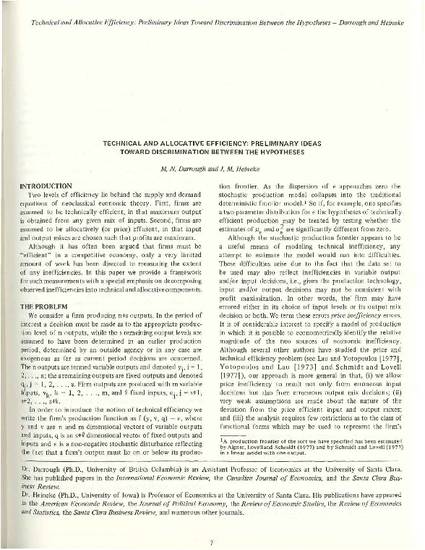
Article
Technical and allocative efficiency: preliminary ideas toward discrimination between the hypotheses
Economics
Document Type
Article
Publication Date
1-1-1978
Publisher
Graduate School of Business, University of Santa Clara
Disciplines
Abstract
Two levels of efficiency lie behind the supply and demand equations of neoclassical economic theory. First, firms are assumed to be technically efficient, in that maximum output is obtained from any given mix of inputs. Second, firms are assumed to be allocatively (or price) efficient, in that input and output mixes are chosen such that profits are maximum. Although it has often been argued that firms must be "efficient" in a competitive economy, only a very limited amount of work has been directed to measuring the extent of any inefficiencies. In this paper we provide a framework for such measurements with a special emphasis on decomposing observed inefficiencies into technical and allocative components.
Citation Information
Heineke, John, and M. N. Darrough. "Technical and Allocative Efficiency: Preliminary Ideas toward Discrimination between the Hypotheses." Santa Clara Business Review 9.1 (1978): 7-12.
